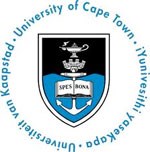
Related
Top stories





Marketing & MediaAds are coming to AI. Does that really have to be such a bad thing?
Ilayaraja Subramanian 8 hours

More news


















As university costs increase above inflation every year, students - or their parents - need deep pockets before they can put on their graduation gowns.
At the University of Cape Town, the cost of an average bachelor of commerce degree has increased by about 40% over the past four years. In 2010, the average cost of a commerce bachelor's degree was R32,250 a year, and in 2013 one can expect to pay about R45,250, making it the most expensive degree of its kind in South Africa.
Gerda Kruger, a spokesman for the university, said factors taken into consideration when increasing fees included "internal inflation", competitiveness and value, as well as the protection of affordability for lower-income groups.
"Close to 65% of costs at UCT are associated with our highly qualified and experienced staff, while a further major cost relates to the provision and maintenance of our estate," she said.
"UCT has 380 National Research Foundation-rated researchers, including 31 A-rated academics who are considered world leaders in their particular fields. Costs also include a wide range of support services such as libraries, laboratories, transport, security, counselling and healthcare services, in addition to the cross-subsidisation of financially needy students," said Kruger.
At the University of the Witwatersrand, the average cost for a commerce degree this year is R37,450, whereas last year it was R33,500, or about 11.7% less.
Shirona Patel, head of communications at Wits, said the weak rand and expensive printing costs had contributed to the fee increases.
"Unlike most businesses, the university is obliged to order its textbooks and specialised equipment from abroad. These goods cost a premium, because they have a small market worldwide. The costs of printing are expected to outstrip average inflation.
"In addition, all goods from outside South Africa attract import duties. Imported books - the lifeblood of the libraries - also attract ad valorum tax. These taxes protect local publishers but can add between 40% and 50% to the costs of textbooks," said Patel.
At the University of Stellenbosch, the average cost of a commerce degree increased by only 4.8% in 2013, to R27,327 for the year.
Overall, Stellenbosch has increased study fees by 9.5%.
"Factors included in the determination of student fees were the increase in the cost of electricity and utilities and the cost of acquiring library materials overseas, which increased significantly due to the weak rand," said Mohamed Shaikh, a spokesman for the university.
"The university's state subsidy was lower and student fee income in 2012 was less than budgeted and this had an impact on the 2013 fees," he said.
"UCT has implemented a policy to guarantee the necessary financial support to any student who is accepted on academic grounds and eligible for assistance. In other words, no student will be turned away simply on the basis of financial need," said Kruger.
"UCT has increased its financial assistance to R100m from our own coffers. This amount is available over and above the R120m we expect the National Student Financial Aid Scheme of South Africa to make available to students.
"It is also over and above about R200m from different corporations and other donors to assist financially needy students," said Kruger.
Source: Sunday Times via I-Net Bridge

For more than two decades, I-Net Bridge has been one of South Africa’s preferred electronic providers of innovative solutions, data of the highest calibre, reliable platforms and excellent supporting systems. Our products include workstations, web applications and data feeds packaged with in-depth news and powerful analytical tools empowering clients to make meaningful decisions.
We pride ourselves on our wide variety of in-house skills, encompassing multiple platforms and applications. These skills enable us to not only function as a first class facility, but also design, implement and support all our client needs at a level that confirms I-Net Bridge a leader in its field.
Go to: http://www.inet.co.za